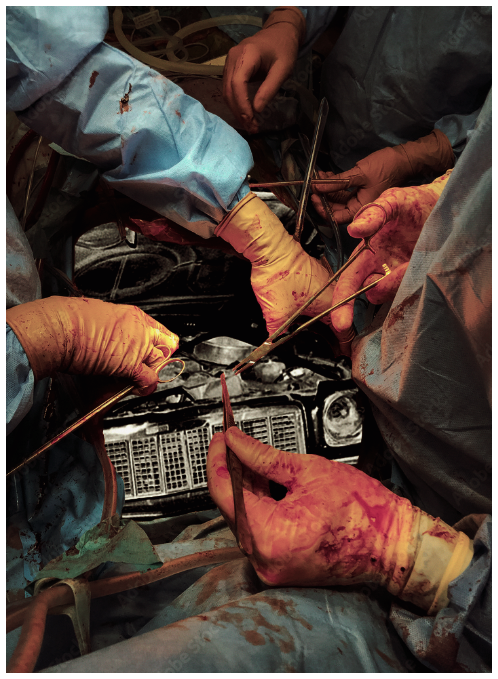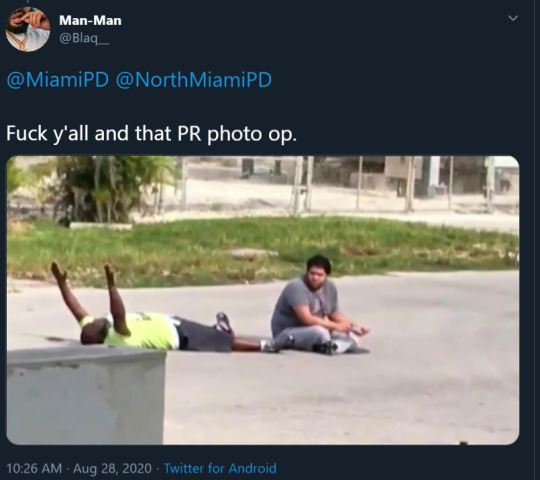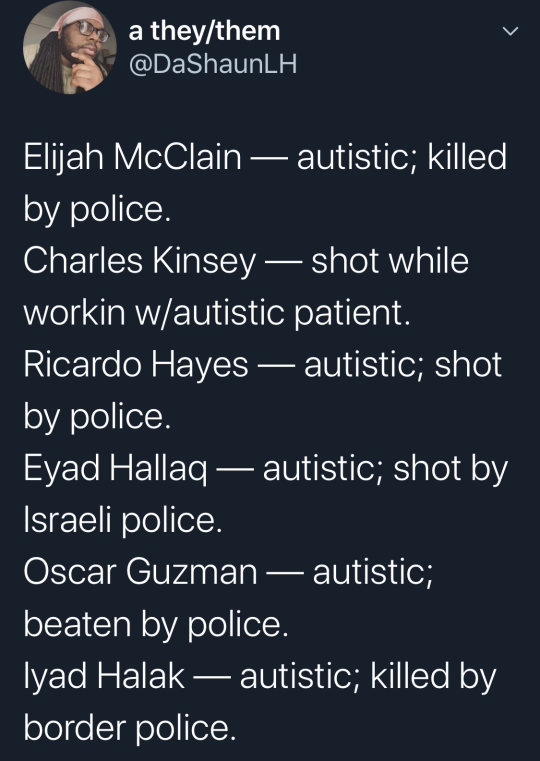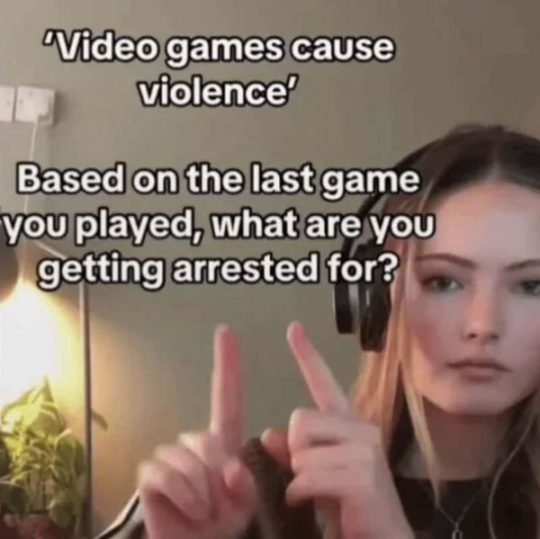Text
#x#me when I was once 1/2 and am now mostly sober#(the sort of sober that gives you maybe a drink a fortnight or a puff every couple of months)
4K notes
·
View notes
Text

what about the reshaping of modern technology, by the human body?
6K notes
·
View notes
Text
not fair that the cuntiest woman in this world is a muppet (ms. piggy)
20K notes
·
View notes
Text
#under ten#my primary school best friend (aka first queer crush lol) was super into bc her family is british#so I wanted to watch it#unfortunately the first ep little 8yo me saw was a weeping angels one 😭💀#was pretty traumatised after that
164 notes
·
View notes
Text
When I was younger and researching the autism diagnosis criteria and symptoms, I thought “oh I couldn’t POSSIBLY be autistic.” Because when I read “takes everything literally” I thought it literally meant EVERYTHING and I was like “I don’t take EVERYTHING literally, just most things!” And I just realized the other day that it didn’t actually mean EVERYTHING and that was an overstatement.
16K notes
·
View notes
Text
hi love you guys do me a favor. big big big BIG breath in right now all the way all the way breathe in feel your belly expanding hold hold hold.. hold.. now everything out like ur a deflating balloon. whoosh. whooooooooosh. imagine water streaming from the top of your head down your shoulders off the ends of your fingertips and toes. u are a reed in a river a beam of pure light a steady anvil solid and heavy. ok that was all thank u
10K notes
·
View notes
Text
You have to recognize your capacity for harm. You cannot omit the harm you've done to others to remain "good." Anybody can be a bigot. Anyone can be an abuser. Anyone can harm anyone at any time even those who have been harmed themselves. The world is not made up of victims and villains only, this is life, not a Saturday morning cartoon and you are a human being who can or maybe even has hurt others and you HAVE to acknowledge that to learn to be better.
#me when I’ve done shitty things and continued to be human#people are gonna do shitty things but there’s little that’s irredeemable if you’re willing to be accountable to your actions
16K notes
·
View notes
Photo



you can’t support autistic people and support the police. No amount of paint jobs or sensitivity training can stop police from killing with impunity
105K notes
·
View notes
Text

13K notes
·
View notes
Text
"crochet can't be made by machines" went from being a cool fun fact to being a call to action of "so if you see mass manufactured crochet in Target, that was made by a person and they were underpaid and you should boycott it" which is true, it was made by a person, but EVERY item of clothing you own (that you did not purchase from a company using ethical labor) was made by a person being underpaid (at *best*.)
Sewing machines are operated by *people*. Knitting machines are operated by *people*. Yes lots of the process is automated but you cannot tell a machine "make me a t-shirt" or "make me a knit cardigan".
Higher awareness of fast fashion, and the true human labor and abuse behind it, is GREAT, but let's not pretend that the crochet hat in target is THE problem. Every article of clothing in target is the problem. "All clothes are made by people" is the jumping off point here into understanding this issue it's not just crochet it's the whole thing ahhhhHHHHHHHHHH
20K notes
·
View notes
Text
better is subjective u can vote based on usefulness or sexiness or w/e the fuck . idc
#paladin is better because I personally think all paladins have big dad vibes#and I am notoriously obsessed with dad characters#I simply want to father a child in an imaginary world and I want that bond to cause me immense psychic damage when the DM kills one of us
589 notes
·
View notes
Text
vampirism poses the question "what if there was a fundamental, horrible, unending well of want in your soul that, if truly satisfied, would lead to great pain for all those you hold closest and, in turn, their absolute and total revilement of you?" and naturally as a person with no problems I don't relate to this in any way at all.
29K notes
·
View notes
Text
Take the test
You can only do 12 options in a poll so if you tie choose which one you prefer???
11K notes
·
View notes
Text
“I first started noticing the journalists dying on Instagram. I'm a journalist, I'm Arab, and I've reported on war. A big part of my community is other Arab journalists who do the same thing.
And when someone dies, news travels fast. Recently, I pulled up the list that the Committee to Protect Journalists has been keeping and looked at it for the first time. There are 95 journalists and media workers on it as of today.
Almost everyone on it is Palestinian. Scrolling through, I started to get angry. These were the people carrying the burden of documenting this whole war.
Israel is not allowing foreign journalists into Gaza, except on rare occasions with military escorts. These people's names are being buried in a giant list that keeps growing. What I want to do is lift some of them off the list for a moment and give you a glimpse of who they were and the work they made.
I'll start with Sadi Mansour. Sadi was the director of Al-Quds News Network, and he posted a 22-second video on November 18. That was a report from the war, but it also gave me a picture into his marriage.
Sadi's wearing his press vest and looks exhausted. He's explaining that cell service and the Internet keep getting cut off, and it's often impossible to text or call anyone, including his wife. So they've resorted to using handwritten letters to communicate while he's out reporting, sending them back and forth with neighbors or colleagues.
He ends the video with a picture of one of these letters from his wife. In it, she writes,
‘Me and the kids stayed up waiting for you until the morning, and you didn't come home. We were really sad.
I kept telling the kids, Look, he's coming. But you didn't show up. May God forgive you.
Come home tomorrow and eat with us. Do you want me to make you kebab or maybe kapse? Bring your friends with you, it's okay.
And give Azeez the battery to charge. What do you think about me sending you handwritten letters with messenger pigeons from now on? Ha ha ha.
I'm just kidding. I want to curse at you, but we're living in a war. Too bad.
Okay, I love you. Bye.’
A few hours after he shared that letter, Sadie and his co-worker Hassouna Saleem were at Sadie's home, when they were killed by an Israeli air strike that hit his house.
His wife and kids, who weren't there, survived.
Gaza is tiny, and the journalist community is really close. Reading the list, you can see all the connections between people. Like with Brahim Lafi.
Brahim was a photojournalist, one of the first journalists to die. He was killed while reporting on October 7. He was just 21, still new to journalism.
On his Instagram, you can see that in his posts just a few years ago, he was still practicing his photography, taking pictures of coffee cups and flowers. Then he started doing beautiful portraits and action shots. You can really feel him starting to become a journalist.
Clicking around on Instagram, I found a tribute post about Brahim from his co-worker Rushdie Sarraj. In this photo, Brahim staring intently at the back of a camera, his face lit up by the light from the viewfinder. He looks so young.
The caption reads, My assistant is gone. Brahim is gone. Rushdie himself was a beloved journalist and filmmaker.
And I know that because he's also on the list. He was killed just two weeks after Brahim. I read the tribute post to him too.
I saw this over and over again. Journalists posting tributes, who were then killed themselves soon after. And a tribute goes up for them.
And then the pattern continues.
Thank you.
Something else I saw over and over on the list, journalists later in the war who had become aware that they could be making their last reports. They'd say it at the beginning of their videos. And those were the hardest to watch, especially when it was true.
One video like that was posted by Ayat Hadduro. Ayat was a freelance journalist and video blogger. Her videos before the war covered a wide range from what I can tell, interviews about women in politics.
She even appeared in a commercial for ketchup-flavored chips. She clearly liked being in front of the camera. Once the war started, Ayat's pivoted to covering bombings and food shortages.
On November 20, she posted a video report from her home. You can hear the airstrikes hitting very close to where she is. It's scary.
‘This is likely my last video. Today, the occupation forces dropped phosphorus bombs on Beit Lahya area and frightening sound bombs. They dropped letters from the sky, ordering everyone to evacuate.
Everyone ran into the streets in the craziest way. No one knows where to go.
But everyone else has evacuated. They don't know where they're going. The situation is so scary.
What's happening is so tough, and may God have mercy on us.’
She was killed later that day.
Targeting journalists, in case you didn't know, is a war crime. So far, the Committee to Protect Journalists has found that three of the journalists on the list were explicitly targeted by the IDF, the Israeli military. Investigations by the Washington Post and Reuters, Human Rights Watch and the United Nations have also raised serious questions in these three cases.
And the Committee to Protect Journalists is investigating 10 other killings. When we reached out to the IDF for comments, they said, quote, the IDF has never, and will never, deliberately target journalists. That's the answer they always give in these situations.
Meanwhile, dozens of seasoned reporters have fled Gaza. Journalists who worked for Al Jazeera, the BBC, the New York Times, the Washington Post, Reuters, Agence France-Presse. So many media offices were demolished in Israeli airstrikes that the Committee to Protect Journalists stopped counting.
It's not just individual lives that have been destroyed. It's an entire infrastructure.
Thank you.
The name on the list that was hardest for me to look at was Issam Abdullah, because I'd crossed paths with him once. Issam was a Lebanese journalist, a video journalist for Reuters for many, many years. He had just won an award for coverage of Ukraine.
I'm Lebanese and still report there sometimes, and I'd worked with Issam a couple of summers ago. He helped me film a sort of random story in Beirut. I was interviewing this entrepreneur who had started a sperm freezing company after an accident where he spilled a tray of hot coffee on his private area, burning himself.
I know, ridiculous. It was a really silly shoot. Right after we said cut and started to rap, Issam started this whole bit about being in his late 30s, reconsidering his own sperm quality and everything he now realized he was doing to hurt it, and no one could stop laughing.
It was a really good day that felt good to remember and to remember him that way. Issam was killed by the IDF on October 13. His death was one of the three that the Committee to Protect Journalists has identified as a targeted killing.
He was fired upon by an Israeli tank while standing in an empty field on the Lebanon-Israel border with a small group of other journalists. Everyone was wearing press vests with cameras out. They were covering the Hezbollah part of this war.
A few other journalists were injured in the attack, which was captured on video. The IDF says they were responding to firing from Hezbollah, not targeting the journalists. But multiple investigations, including by Reuters, the United Nations, Amnesty International and the AFP, found no evidence of any firing from the location of the journalists before the IDF shot at them.
The journalists in the group and video footage confirmed that there was no military activity near them. I had only met Issam once, barely knew him, but it affected me so much when he died. I know that he understood the risks of his job, but somehow it still felt so random and unfair that he would be struck down like that, following the rules, wearing his press vest and helmet, and a pack of reporters on a sunny day in an open field.
I find myself thinking about him all the time. His last Instagram post was commemorating another journalist, this iconic reporter Shereen Abou Aql who had been killed by the IDF. When I first saw that post in October, I thought how ironic because a week later, Isam also was killed by the IDF.
But then, after spending time reading the list, I realized how common this had become. I still haven't finished going through the list and looking up the people on it. I keep finding things that stick with me, like the funny way this one radio host would cut off a caller who was rambling on for too long.
A tweet from reporter Al-Abdallah that quoted Sylvia Plath. It read, What ceremony of wars can patch the havoc? I'm going to keep going down the list, even though this story is over now.
Just for myself. My own way of bearing witness. Which is, in the end, all that these journalists were trying to do.”
—DANA BALLOUT, The 95. Dana sifts through a very long list—the list of journalists killed in the Israel-Hamas war, and comes back with five small fragments of the lives of the people on it. Dana is a Lebanese-American, Emmy-nominated documentary producer.
2K notes
·
View notes
Text


#‘they’ve made masacarring us a tourist attraction’#fucked#I can’t imagine the pain of this for real#what a cursed existence it would be. to enter a conflict of this scale for the fun of it#I hope it’s painful for these men but I doubt it would be
5K notes
·
View notes
Text
15K notes
·
View notes